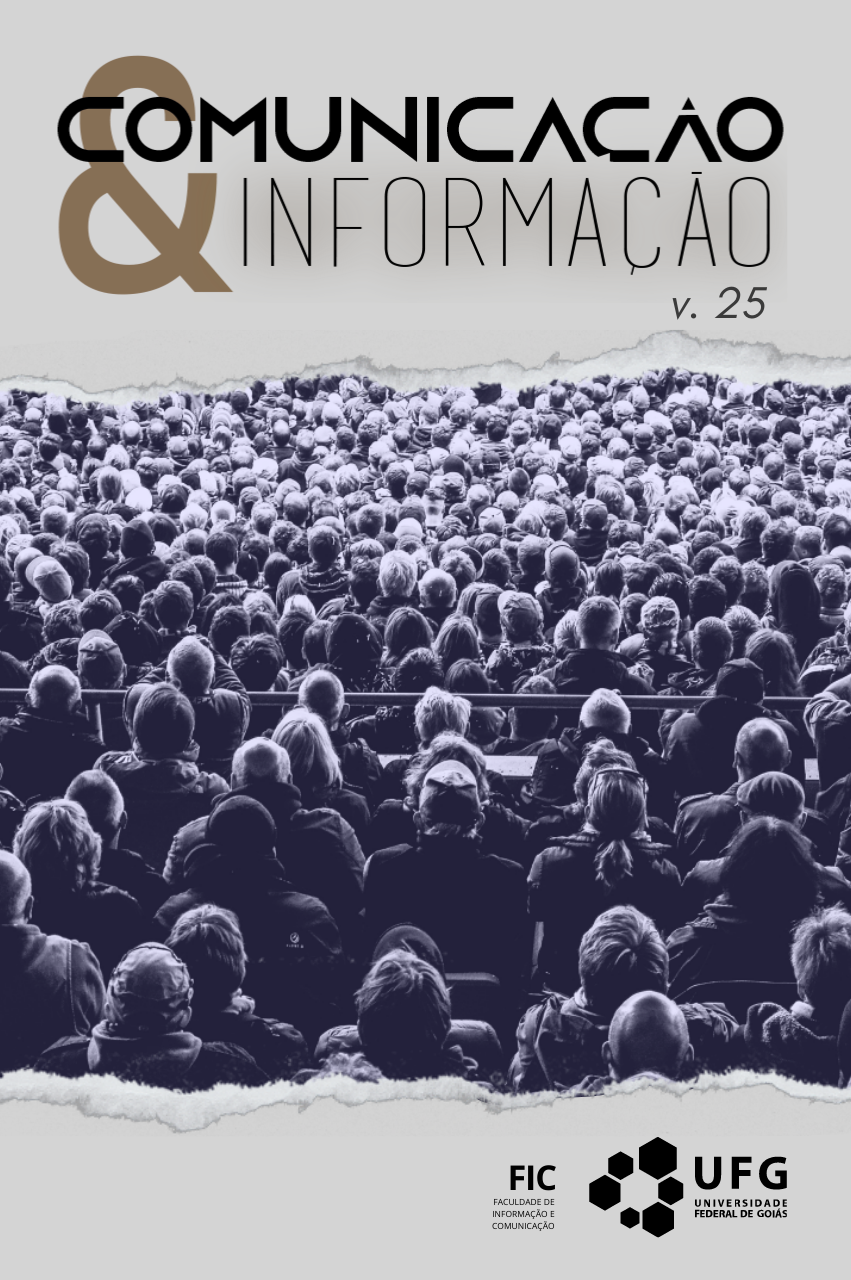Digital Platforms’Influence on the Work of Hip-hop Beatmakers from Salvador
DOI:
https://doi.org/10.5216/ci.v25.71322Keywords:
platformization, music, labor, hip hopAbstract
This article seeks to understand the role of digital materialities in music streaming platforms and social networks (Spotify, SoundCloud and Instagram) in the making of hip-hop beats and in the work routine of the beatmakers of Salvador as a whole. Through descriptive analysis of these platforms along with interviews with musicians, we seek to indicate some evidences that reveal the influence of the platformization phenomenon in music and in the mechanics of these artists' work. In conclusion, we affirm that the work of these beatmakers can only be understood if we take into account the transformations caused by the processes of platformization of music production. The musicians have to learn to use the material grammars of these platforms to share and sell their music.
Downloads
References
BUCHER, T. If...Then. Algorithmic Power and Politics. Oxônia, Reino Unido: Oxford University Press, 2018.
CASILLI, A.; POSADA, J. The Platformization of Labor and Society. In: GRAHAM, M.; DUTTON, W. H. (Orgs.). Society and the Internet: How networks of information and communication are changing our lives. Oxônia, Reino Unido: Oxford University Press, 2019. p. 293-306.
COTTER, K. Playing the Visibility Game: How Digital Influencers and Algorithms Negotiate Influence on Instagram. New Media & Society, v. 21, n. 4, p. 895-913, 2018.
ERIKSSON, M.; FLEISCHER, R.; JOHANSSON, J.; SNICKARS, P.; VONDERAU, P. Spotify Teardown: Inside the Black Box of Streaming Music. Cambridge, MA, EUA: MIT Press, 2019.
GROHMANN, R. Plataformização do trabalho: entre dataficação, financeirização e racionalidade neoliberal. Revista Eptic, v. 22, n. 1, p. 106-122, 2020.
HESMONDHALGH, D.; JONES, E.; RAUH, A. SoundCloud and BandCamp as Alternative Music Platforms. Social Media + Society, v. 5, n. 4, p. 2056305119883429, 2019.
KIM, J.; YU, J. Platformizing Webtoons: The Impact on Creative and Digital Labor in South Korea. Social Media + Society, v. 5, n. 4, p. 2056305119880174, 2019.
LEMOS, A. Plataformas, Dataficação e Performatividade Algorítmica (PDPA). Desafios Atuais da Cibercultura. In: PRATA, N.; PESSOA, S. C. (Orgs). Fluxos Comunicacionais e Crise da Democracia. São Paulo: Intercom, 2020, pp 107-116.
MORRIS, J. W. Music Platform and the Optimization of Culture. Social Media + Society, v. 6, n. 3, p. 2056305120940690, 2020.
NEGUS, K. From creator to data: the post-record music industry and the digital conglomerates. Media, Culture and Society, v. 41, n. 3, p. 367-384, 2019.
NIEBORG, D.; POELL, T. The platformization of cultural production: Theorizing the contingent cultural commodity. New Media & Society, v. 20, n. 11, p. 4275-4292, 2018.
VAN DIJCK J., POELL, T., DE WALL, M. The Platform Society: Public values in a connective world. Oxônia, Reino Unido: Oxford Press, 2018.
VAN DOORN, N. Platform labor: on the gendered and racialized exploitation of low-income service work in the ‘on-demand’ economy. Information, Communication & Society, v. 20, n. 6, p. 898-914, 2017.
Downloads
Published
How to Cite
Issue
Section
License
Os autores dos trabalhos publicados na revista Comunicação e Informação retêm os direitos autorais sem restrições e concedem à revista o direito de primeira publicação, com o trabalho simultâneo licenciado sob a Licença Creative Commons Atribuição-NãoComercial que permite o compartilhamento do trabalho para fins não comerciais com reconhecimento da autoria e o privilégio de publicação primeiramente por esta revista. Caso o texto venha a ser publicado posteriormente em outro veículo, solicita-se aos autores informar que o mesmo foi originalmente publicado como artigo na revista Perspectiva, bem como citar as referências bibliográficas completas dessa publicação.
Os direitos autorais dos artigos pertencem aos autores e o conteúdo dos artigos assinados é de responsabilidade exclusiva dos autores.
A revista se reserva o direito de efetuar, nos originais, alterações de ordem normativa, ortográfica e gramatical, com o intuito de manter o padrão culto da língua, respeitando, porém, o estilo dos autores.
A revista também se reserva o direito de traduzir o artigo, no todo ou em parte, para o inglês ou para o português, dependendo do idioma em que o artigo tenha sido escrito originalmente.



